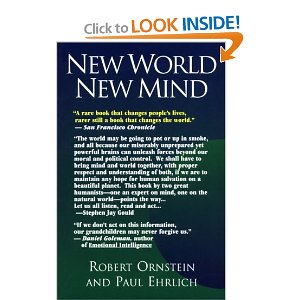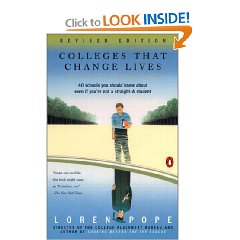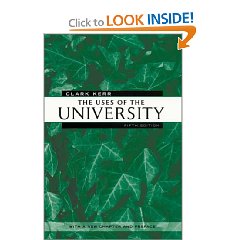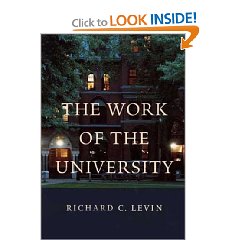Review: Fog Facts –Searching for Truth in the Land of Spin (Nation Books) (Hardcover)
5 Star, Censorship & Denial of Access, Education (General), Education (Universities), Information Operations, Information Society, Media, Misinformation & Propaganda“Fog facts” are facts that are out in the open, but “invisible” in the sense that no one acts on them. The stolen Florida election–30,000 plus disenfranchised blacks *and* “overcount” votes where Al Gore was both checked and written, rejected as invalid instead of returned for verification–the specious claims against Iraq; the 9-11 Commission apologia; the list goes on. For myself, the most interesting fog facts dealt with the number of terrorists caught and jailed by France and other nations, as a tiny fraction of the cost of invading Afghanistan and Iraq, and with little to show for it excepts casualties, including significant numbers of US amputations being concealed from the public.
The author “outs” Judith Miller as an agent of Karl Rove in the run-up to the war in Iraq, earnestly selling the Administration's line on weapons of mass destruction, and perhaps one reason she was both favored by Rove in the current Valerie Plume case, and also sought to protect Rove.
THe author gets the jump on the current scandal of the disappearing billions in Iraq–not just the billions for Halliburton in sole source contracts, but the outright theft and squandering of the $19 billion in Iraqi bank credits that Paul Bremer managed to fritter away–and they still do not have running water or electricity.
THe author quotes several times from Mein Kamph in discussing the extremist Republican use of “the big lie” and the comparisons are disconcertingly clear. He weaves a tale of draft-dodging hypocrisy among the Bush Junior and Cheney gang that is all too distasteful when combined with their corruption in favoring Halliburton–his listing of Cheney's ignominious failures as CEO of HAlliburton are fun–and also a sign that Halliburton knew what it was doing in suffering the fool that would deliver the people's treasure. His accounting of Bush Juniors many failures in business, each time living on his father's name and getting bailed out by the forgiving rich that he has repaid many times over with tax cuts and exemptions from asbestos claims, among other loopholes, is dismaying in the extreme. We “know” these things, but we do not act.
On page 82 he repeats what is now perhaps the most famous quote to come out of the Bush Junior White House, where an arrogant aide dismisses a “reality-based” person and says that the U.S. is an empire now, and makes its own reality. That the reality we are making is one of our own destruction escapes this witless aide to the President, so full of himself is he.
The books adds to my understanding of the current Social Security arrangements as a pass through system (each generation funds the next) as opposed to the Administration's proposal for privatization, which converts it to a pension fund that dies with each generation. I am persuaded that we must defend Social Security, it is present form, to the death, and that we must remove the caps and make the wealthy contribute for every dollar, not just up to $90,000.
The author concludes that there is a war today, not between civilizations, but between faith-based and reality-based communities.
I put the book down reflecting to myself that it is time for the American labor union pension funds to lead a revolution. It is time for the people to form their own bank, their own credit card company, their own intelligence agency, and their own media. Although this is happening in fits and starts with the Internet, it is disjointed. We need to marry up money, willpower, and honest information, and we need to out these carpetbaggers and regain control of the commonwealth.
Truth and morality are here to be found, but the question that remains is: will the people act? This is a very fine book for anyone who cares about future generations and resents being robbed.
Ten Other Recommended Books (Five Bad News, Five Good News):
Vice: Dick Cheney and the Hijacking of the American Presidency
Running on Empty: How the Democratic and Republican Parties Are Bankrupting Our Future and What Americans Can Do About It
The Global Class War: How America's Bipartisan Elite Lost Our Future – and What It Will Take to Win It Back
The Working Poor: Invisible in America
American Fascists: The Christian Right and the War On America
A Power Governments Cannot Suppress
The Tao of Democracy: Using Co-Intelligence to Create a World That Works for All
Society's Breakthrough!: Releasing Essential Wisdom and Virtue in All the People
Escaping the Matrix: How We the People can change the world
The Wealth of Networks: How Social Production Transforms Markets and Freedom
Review: Colleges That Change Lives–40 Schools You Should Know About Even If You’re Not a Straight-A Student (Paperback)
4 Star, Education (Universities)I have also realized that with the thousands of colleges and universities across America, including community colleges that are now going “upscale” and expanding their computer and laboratory facilties, that this book is like a placebo–it pupports to offer a life-changing experience with a very narrow selection of schools, when in fact there are plenty of life-changing schools right before our eyes, in every state of the Union.
It merits comment that this past week none of the schools in this book that we visited caught my son's attention (he is one of those who thought, until this trip, that he never wanted to go to college), but when we visited Muhlenberg College, my alma mater, not only did he perk up, but the hand of God was visible–a college educated custodian opened the locked rooms in the Arts Center, showing him the music and digital video programming rooms, and that sealed the deal.
Read this book for ideas, discard the “list” as flawed and misrepresentative and open your eyes to all the options.
Review: New World New Mind–Moving Toward Conscious Evolution
5 Star, America (Founders, Current Situation), Best Practices in Management, Change & Innovation, Civil Society, Complexity & Resilience, Consciousness & Social IQ, Culture, Research, Democracy, Education (General), Education (Universities), Environment (Solutions), Future, Intelligence (Collective & Quantum), Intelligence (Public), Nature, Diet, Memetics, Design, Philosophy, Priorities, Survival & Sustainment, Technology (Bio-Mimicry, Clean), Truth & Reconciliation, Values, Ethics, Sustainable Evolution, Voices Lost (Indigenous, Gender, Poor, Marginalized), Water, Energy, Oil, Scarcity
5.0 out of 5 stars From 1989, Not Updated, Superb Never-the-Less
April 28, 2005
Robert E. Ornstein, Paul Ehrlich
EDIT 20 Dec 07 to add links.
This superb book was published in 1989 and is being reissued, and I am very glad it has come out again. I bought it because it was recommended by Tom Atlee, seer of the Co-Intelligence Institute, and I found it very worthwhile.
As I reflect on the book, I appreciate two key points from the book:
1) The evolution of our brains and our ability to sense cataclysmic change that takes place over long periods of time is simply not going fast enough–the only thing that can make a difference is accelerated cultural evolution, which I find quite fascinating, because cultural evolution as the authors describe it harkens to noosphere, World Brain, co-intelligence, and what the Swedes are calling M4 IS: multinational, multiagency, multidisciplinary, multidomain information sharing–what I think of as Open Source Intelligence–personal, public, & political.
2) One of the more compelling points the authors make is that not only are politicians being elected and rewarded on the basis of short-term decisions that are by many measures intellectually, morally, and financially corrupt, but the so-called knowledge workers–the scientists, engineers, and others who should be “blowing the whistle,” are so specialized that there is a real lack of integrative knowledge. I realized toward the end of the book, page 248 exactly, that Knowledge Integration & Information Sharing must become the new norm.
This is a tremendous book that is loaded with gems of insight. I have it heavily marked up. Although it integrates and reminds me of ideas ably explored in other books, such as Health of Nations, Cultural Creatives, Clock of the Long Now, ATTENTION, Limits to Growth, and Forbidden Knowledge, these two authors have integrated their “brief” in a very readable way–as one person says on the book jacket, they effectively weave together many strands of knowledge.
The annotated bibliography is quite good, and causes me to be disappointed that the publishers did not provide for the updating of the bibliography–the ideas being blended are timeless and need no update.
Two notes toward the end were quite interesting. They speculate that Japan may be the first modern nation to collapse, if it is subject to disruption of the global trade and transportation system. They also have high praise for Global 2000, an integrative work whose predictions for the 2000 period (written in the 1970's, I believe) are turning out to be quite accurate.
Finally, woven throughout the book, is the simple fact that we are now burning up our savings–consuming the Earth at a much faster rate than it can replenish itself. We are very much out of harmony with our sustaining environment, and at grave risk of self-destruction. Interestingly, they remind of the Durants last word in “The Lessons of History:” that the only revolution, the only sustainable revolution, is that which takes place in the human mind. As these authors would have it, if we do not develop a new collective mind capable of integrating, understanding, and acting sensible, for the long term, on what we can know as a collective mind, then our grandchildren will become prey for the cockroaches of the future.
At a time when the new Director of National Intelligence (DNI), Ambassador Negroponte, is seriously contemplating the establishment of a national Open Source (Information) Agency as recommended by the 9-11 Commission, to get a grip on all the historical and current knowledge, both scientific and social, that we have lost touch with, I can think of just three books I would recommend to the DNI as a foundation for his reflections: this one, Buckman's “Creating a Knowledge Driven Organization,” and Wheatley's “Leadership and the New Science.” I would end his tutorial, or perhaps inspire it, by screening Tom Atlee's video, “From Group Magic to a Wise Democracy.”
Strangely, for I tend to be very gloomy about our prospects these days, I find that this book has cheered me somewhat. I sense the possibility of a break-out through a combination of wise information acquisition and sharing policies, and the application of the new technologies that L-3, CISCO, and IBM, among others, are bringing out, technologies that put intelligence on the edge of the network, and permit the creation of infinitely scalable and shareable synthetic information exactly suited to any need at any level.
There *is* an answer to all that ails us, and these two authors discuss it in a very capable manner.
See also, with reviews:
Integral Consciousness and the Future of Evolution
The Tao of Democracy: Using Co-Intelligence to Create a World That Works for All
The Cultural Creatives: How 50 Million People Are Changing the World
Group Genius: The Creative Power of Collaboration
The Wealth of Networks: How Social Production Transforms Markets and Freedom
Global Brain: The Evolution of Mass Mind from the Big Bang to the 21st Century
World brain
Leadership and the New Science: Discovering Order in a Chaotic World
The World Cafe: Shaping Our Futures Through Conversations That Matter
THE SMART NATION ACT: Public Intelligence in the Public Interest
Review: The Uses of the University: Fifth Edition
5 Star, Education (Universities)The author is alarmed by the possibilities that universities, which were nurtured by post-World War II federal funding and state funding that is now vanishing, could begin to fail in almost catastrophic terms. Between aging and unrepentent faculty, the vanishing of liberal arts (or even quality education) for undergraduates, and the prostitution of graduate education to commercial purposes, there does appear to be a crisis.
After noting that America appears to spend more on prisons than on universities, the author makes several recommendations, all of which appear sensible. They include a new emphasis on university support to primary and secondary education, a rationalization of information technology within communities to better link businesses with members of the university family, the exploration of distance learning alternatives (as much to reach the drop-outs inexpensively as for any other reason), and the resurrection of mid-career education or continuing education as a mainstream expectation for personal as well as business advancement.
The author, who clearly has a very strong ethical perspective, quotes Alfred North Whitehead, who concluded that any society that “does not value trained intelligence is doomed” and adds his own view, that “the university that does not fully dedicate itself above all else to the continuing advancement of trained intelligence is also doomed.”
This is a really fine book that should be in the library of anyone seeking to understand “national intelligence” as Thomas Jefferson understood it when he said “A Nation's best defense is an educated citizenry.”

Review: Universities in the Marketplace–The Commercialization of Higher Education
4 Star, Capitalism (Good & Bad), Education (Universities)As we have seen in time since 9-11, all of these tribes appear to be failing–national on 9-11, military in Afghanistan and Iraq, law enforcement on Hamas and Pakistani terrorists still active within the US, business in general (Boeing being had by Airbus, for example), now in this book, the universities, the failure of the media to support the debate on going to war with Iraq, and of the New York Times in ethics specifically, the self-indulgent failure of the Catholic Church to police its own priests–this is not a pretty picture. In all of this, the university is central to the creation of a public that should be fully versed in “civitas” and electing public officials who are liberally educated as well as scientifically trained. That does not appear to be happening. This book helps explain why.

Review: The Work of the University
3 Star, Education (Universities)The author of the book, “The Work of the University”, is clearly educated, articulate, and well-intentioned. The book shows, throughout, that he is a committed and talented advocate for education as a process that evolves values and the capacity for critical thinking; that he understands the relationship of the University to its alumni, its host city, and the nation at large; and–in an antiseptic sort of way–that China, to take the one example prominent in his book–merits attention, both as a source of students and a host for joint educational ventures.
Early in the book, I thought I was in for a treat when the author, in one of his welcoming speeches to a new class (this is a book of past speeches, not an integrated work) says: “You have the most to learn from those who are least like you; they will challenge you by asking questions you should ask yourself.” The rest of the book helped me understand that these “others” consisted of the Yale faculty and the Yale students, the latter predominantly American but with a full leaving of homogenized wealthy international students all dressed alike in Abercombie & Fitch ensembles.
The book went downhill from there. Although the author makes passing references to overseas problems including genocides, it did not offer me the compelling mission statement I was expecting, of the university as the soul of a nation, the custodian of intellectual values and global awareness, the one place where tenure as well as enlightenment might combine to shed the light of truth on all manner of domestic and foreign policy.
Yale can and should be a “Citizen's Intelligence Network” that trains students to think critically, in the context of very strong moral values, such that a Yale student is by any standard a global thinker and actor. That kind of compelling “pragmatic missionary” perspective is not reflected in this book.
George Will, “Statecraft as Soulcraft,”, Yale Business School Dean Garten on “The Politics of Fortune,” these come closer to “the work of the university” than does this book.








